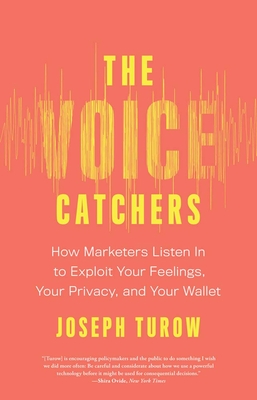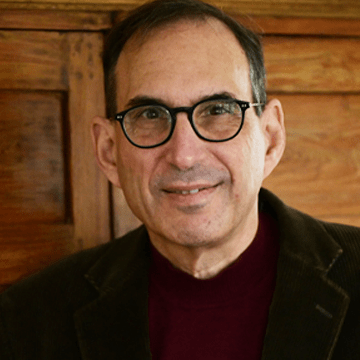

 Yale University Press
Yale University Press
The Voice Catchers: How Marketers Listen in to Exploit Your Feelings, Your Privacy, and Your Wallet


Key Metrics
- Joseph Turow
- Yale University Press
- Paperback
- 9780300268164
- 9.25 X 6.13 X 0.94 inches
- -
- Business & Economics > Industries - Computers & Information Technology
- English
 Secure Transaction
Secure TransactionBook Description
[Dr. Turow ] is encouraging policymakers and the public to do something I wish we did more often: Be careful and considerate about how we use a powerful technology before it might be used for consequential decisions.--Shira Ovide, New York Times
Only three decades ago, it was inconceivable that virtually entire populations would be carrying around wireless phones wherever they went, or that peoples' exact locations could be tracked by those devices. We now take both for granted. Even just a decade ago the idea that individuals' voices could be used to identify and draw inferences about them as they shopped or interacted with retailers seemed like something out of a science fiction novel. Yet a new business sector is emerging to do exactly that.
The first in-depth examination of the voice intelligence industry, The Voice Catchers exposes how artificial intelligence is enabling personalized marketing and discrimination through voice analysis. Amazon and Google have numerous patents pertaining to voice profiling, and even now their smart speakers are extracting and using voiceprints for identification and more. Customer service centers are already approaching every caller based on what they conclude a caller's voice reveals about that person's emotions, sentiments, and personality, often in real time. In fact, many scientists believe that a person's weight, height, age, and race, not to mention any illnesses they may have, can also be identified from the sound of that individual's voice. Ultimately, not just marketers, but also politicians and governments, may use voice profiling to infer personal characteristics for selfish interests and not for the benefit of a citizen or society as a whole.
Leading communications scholar Joseph Turow places the voice intelligence industry in historical perspective, explores its contemporary developments, and offers a clarion call for regulating this rising surveillance regime.
Author Bio
Joseph Turow is Robert Lewis Shayon Professor of Media Systems & Industries at the Annenberg School for Communication. Turow is an elected Fellow of the International Communication Association and was presented with a Distinguished Scholar Award by the National Communication Association. A 2005 New York Times Magazine article referred to Turow as “probably the reigning academic expert on media fragmentation.”
In 2010, the New York Times called him “the ranking wise man on some thorny new-media and marketing topics.” In 2012, the TRUSTe internet privacy-management organization designated him a “privacy pioneer” for his research and writing on marketing and digital-privacy.
He has authored twelve books, edited five, and written more than 160 articles on mass media industries. His most recent books are The Voice Catchers: How Marketers Listen In to Exploit Your Emotions, Your Privacy, and Your Wallet (Yale, 2021), Media Today: Mass Communication in a Converging World (Routledge, 2020), and The Aisles Have Eyes: How Retailers Track Your Shopping, Strip Your Privacy, and Define Your Power (Yale, 2017).
In 2011, Yale University Press published his book The Daily You: How the New Advertising Industry is Defining Your Identity and Your World; a Turkish edition came out in 2015. In 2010, the University of Michigan Press published Playing Doctor: Television, Storytelling, and Medical Power, a history of prime time TV and the sociopolitics of medicine, and in 2013, it won the McGovern Health Communication Award from the University Of Texas College of Communication. Other books reflecting current interests are Niche Envy: Marketing Discrimination in the Digital Age (MIT Press, 2006); Breaking Up America: Advertisers and the New Media World (University of Chicago Press, 1997; paperback, 1999; Chinese edition, 2004); and The Hyperlinked Society: Questioning Connections in the Digital Age (edited with Lokman Tsui, University of Michigan Press, 2008).
Turow’s continuing national surveys of the American public on issues relating to marketing, new media, and society have received a great deal of attention in the popular press, as well as in the research community. He has been interviewed widely about his research, including by NPR’s Fresh Air with Terry Gross, The Atlantic, the BBC, CBS News, and elsewhere. He has also written about media and advertising for the popular press, including the New York Times,
The Atlantic, American Demographics magazine, the Washington Post, the Boston Globe, and the Los Angeles Times. His research has received financial support from the Digital Trust Foundation, the John D. and Catherine T. MacArthur Foundation, the Kaiser Family Foundation, the Robert Wood Johnson Foundation, the Federal Communications Commission, and the National Endowment for the Humanities, among others.
Turow was awarded a Lady Astor Lectureship by Oxford University. He has received several conference paper and book awards and has lectured widely. He was invited to give the McGovern Lecture at the University of Texas College of Communication, the Pockrass Distinguished Lecture at Penn State University, and the Chancellor’s Distinguished Lecture at Louisiana State University. He currently serves on the editorial boards of the Journal of Broadcasting and Electronic Media, the International Journal of Communication, and Media Industries.
He also has served as the elected chair of the Mass Communication Division of the International Communication Association.
Source: Annenberg School of Communication, University of Pennsylvania
Community reviews
Write a ReviewNo Community reviews


